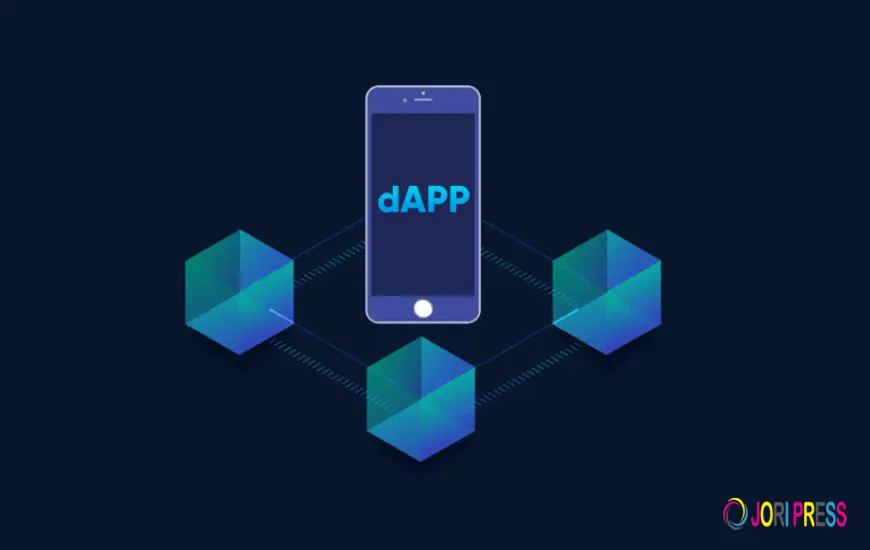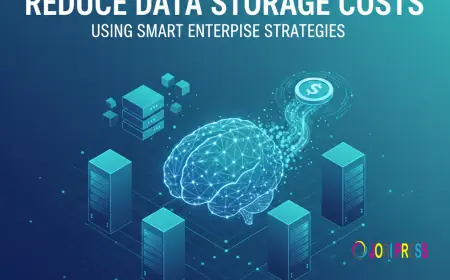AI + Smart Contracts: Building Predictive DeFi Protocols for Smarter Yields
Discover how AI-powered smart contracts are transforming DeFi with predictive protocols for smarter yields. Learn about smart contract development services for secure, automated finance solutions.

The convergence of artificial intelligence (AI) and smart contract technology is reshaping decentralized finance (DeFi) by introducing predictive capabilities that optimize returns, minimize risk, and automate complex investment strategies. Enterprises and startups exploring blockchain solutions are increasingly turning to professional smart contract development services to harness AI-powered DeFi protocols. Engaging with a smart contract development company ensures robust, secure, and compliant implementations capable of delivering measurable financial advantages. By combining AI’s predictive modeling with smart contract automation, DeFi platforms can dynamically adapt to market fluctuations, creating more intelligent and responsive ecosystems.
The rise of predictive DeFi protocols marks a significant evolution in the blockchain space. Unlike static yield farming or staking strategies, these protocols leverage real-time market data, historical trends, and probabilistic AI models to anticipate market movements and adjust investment allocations accordingly. This approach allows users to maximize returns while mitigating exposure to volatility, positioning AI-driven smart contracts as a cornerstone of next-generation decentralized finance.
Understanding Predictive DeFi Protocols
What Are Predictive DeFi Protocols?
Predictive DeFi protocols integrate AI algorithms with smart contract logic to forecast asset price trends, liquidity shifts, and user behavior. These predictions inform automated investment decisions, including staking, lending, borrowing, and liquidity provision. Unlike conventional DeFi solutions, predictive protocols operate proactively, continuously recalibrating strategies based on new data inputs, which can range from on-chain activity to macroeconomic indicators.
Role of Smart Contracts in Automation
Smart contracts are the backbone of predictive DeFi systems. They encode predefined rules, conditional triggers, and operational logic, executing transactions without intermediaries. When combined with AI, these contracts can autonomously respond to predicted market events, such as reallocating liquidity from one pool to another or adjusting interest rates dynamically. This integration ensures transparency, immutability, and trustlessness, hallmarks of DeFi ecosystems.
Advantages for Enterprises
For startups and financial enterprises, predictive DeFi protocols offer several strategic advantages. They reduce manual oversight and operational errors, improve yield optimization, and enhance risk management. Additionally, AI-driven insights allow businesses to design differentiated financial products, attract a wider user base, and maintain competitiveness in a rapidly evolving DeFi landscape.
Technical Architecture of AI-Powered Smart Contracts
Data Aggregation and Oracle Integration
AI models require high-quality, real-time data to make accurate predictions. Integrating decentralized oracles ensures smart contracts receive verifiable and tamper-proof market data, such as asset prices, transaction volumes, and liquidity trends. Oracles act as bridges between off-chain datasets and on-chain logic, enabling AI algorithms to feed actionable insights into smart contracts securely.
AI Model Training and Deployment
Predictive protocols rely on machine learning models trained on historical blockchain and financial data. These models are deployed either on-chain for smaller computations or off-chain for resource-intensive analytics, with outputs passed to smart contracts. Off-chain computation helps manage gas costs while maintaining real-time responsiveness, allowing predictive strategies to operate efficiently at scale.
Decision Execution via Smart Contracts
Smart contracts execute decisions based on AI-generated signals. Conditional logic can trigger asset reallocation, automated hedging, yield aggregation, or liquidation strategies. By embedding these rules in immutable contracts, platforms ensure transparency and enforceability, providing users with confidence in automated financial operations.
Security Considerations
AI-powered smart contracts introduce unique security challenges. Decision-making logic must be resilient to adversarial attacks, data manipulation, and flash loan exploits. A professional smart contract development company can implement rigorous testing, formal verification, and multi-layered security audits, ensuring that predictive DeFi protocols remain robust and trustworthy under various market conditions.
Use Cases in DeFi
Yield Optimization
Predictive smart contracts enable dynamic yield strategies that adjust staking, liquidity provision, and lending positions based on market forecasts. By analyzing trends and projected returns, these protocols can allocate capital to maximize yield while maintaining risk thresholds, outperforming static strategies.
Automated Risk Management
Risk management in DeFi is enhanced by AI-driven predictive contracts. These contracts monitor asset volatility, liquidity fluctuations, and leverage ratios, automatically adjusting positions or triggering protective measures such as partial liquidations. Predictive insights reduce exposure to losses and enhance protocol stability.
Dynamic Liquidity Provision
Liquidity pools benefit from predictive automation by adjusting token allocations in anticipation of trading volumes and impermanent loss scenarios. Smart contracts can rebalance pools to optimize fees earned while minimizing exposure to volatility, increasing both user incentives and protocol efficiency.
Smart Lending and Borrowing
Predictive DeFi protocols inform lending and borrowing rates dynamically. AI models forecast demand, interest rate trends, and collateral risk, allowing smart contracts to adjust loan conditions autonomously. This flexibility enhances capital efficiency and ensures fairer, data-driven terms for participants.
Implementation Best Practices
Collaboration with Experts
Implementing AI-powered DeFi protocols requires collaboration with experienced smart contract development services providers. Expertise ensures proper integration of predictive models, secure oracle connections, and robust contract design tailored to enterprise requirements.
Modular Contract Architecture
Building modular smart contracts enhances scalability, maintainability, and adaptability. Enterprises can update AI logic, swap predictive algorithms, or integrate additional data sources without rewriting core contracts, enabling iterative improvements and responsiveness to evolving markets.
Comprehensive Audits and Testing
Given the high stakes of predictive DeFi, comprehensive audits are essential. Security testing, stress testing, and scenario simulations identify vulnerabilities and ensure contracts execute as intended under extreme market conditions.
Regulatory Compliance
Although DeFi operates in a decentralized ecosystem, enterprises must consider jurisdiction-specific regulations for financial services. Contracts must incorporate compliance mechanisms, reporting standards, and risk disclosures to meet legal requirements and safeguard participants.
The Future of AI + Smart Contracts in DeFi
Predictive DeFi represents a paradigm shift, merging intelligence with automation. By 2026, the integration of AI with smart contracts is expected to enable fully autonomous financial ecosystems capable of self-optimizing yields, mitigating systemic risk, and supporting complex multi-chain strategies. Marketplaces for predictive smart contracts will emerge, allowing developers to offer reusable, certified AI-driven contracts to enterprises globally.
Additionally, continuous advancements in machine learning, real-time data infrastructure, and blockchain interoperability will enhance the precision and reliability of predictive DeFi protocols. Businesses leveraging professional smart contract development services will be positioned to capitalize on these innovations, achieving superior yield management and operational efficiency in decentralized finance.
Conclusion
AI-powered predictive smart contracts are redefining DeFi by combining automated execution with intelligent decision-making. Enterprises and startups adopting these protocols can achieve smarter yields, dynamic risk management, and operational efficiency. Collaborating with a professional smart contract development company ensures secure, compliant, and optimized deployment of predictive DeFi solutions. As AI and smart contract integration matures, predictive protocols will form the backbone of autonomous, responsive, and highly efficient decentralized finance ecosystems, driving the future of digital finance.
What's Your Reaction?
 Like
0
Like
0
 Dislike
0
Dislike
0
 Love
0
Love
0
 Funny
0
Funny
0
 Angry
0
Angry
0
 Sad
0
Sad
0
 Wow
0
Wow
0
















































